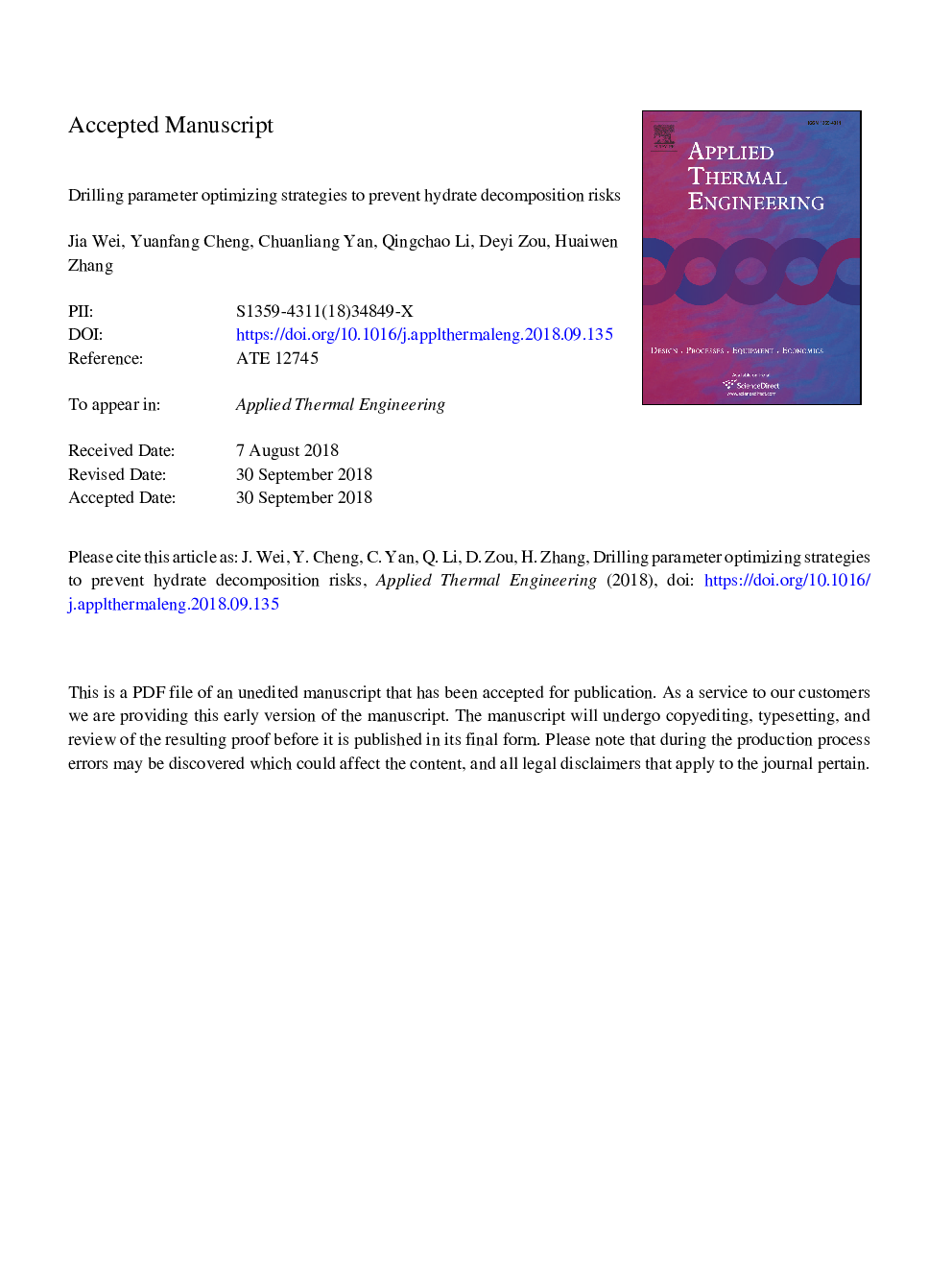| Article ID | Journal | Published Year | Pages | File Type |
|---|---|---|---|---|
| 11020843 | Applied Thermal Engineering | 2019 | 36 Pages |
Abstract
Under the deep waters of the South China Sea are large reserves of methane hydrate, but hydrate decomposition in wellbore and formation, which can cause environmental hazards and safety problems, make the hydrate drilling difficult. To prevent the risks induced by it, the drilling parameters need to be optimized. For this purpose, a wellbore-formation coupled model is established, which analyzes the interactions between temperature field, pressure field and decomposition field. The induced mechanisms of bottomhole pressure drop, wellbore blockage and methane emission under these interactions are described. Sensitivity analyses of drilling parameters give their optimization strategies, which can effectively address potential drilling risks.
Related Topics
Physical Sciences and Engineering
Chemical Engineering
Fluid Flow and Transfer Processes
Authors
Jia Wei, Yuanfang Cheng, Chuanliang Yan, Qingchao Li, Deyi Zou, Huaiwen Zhang,
